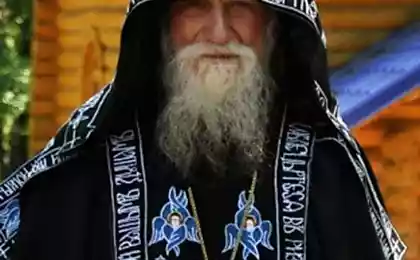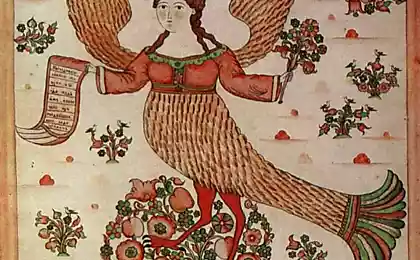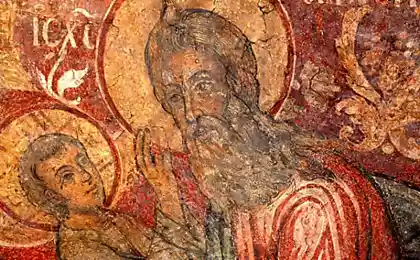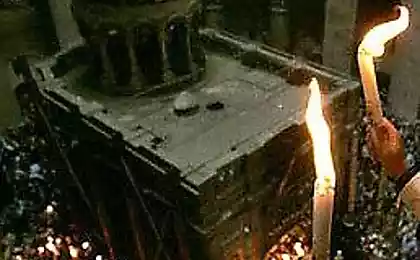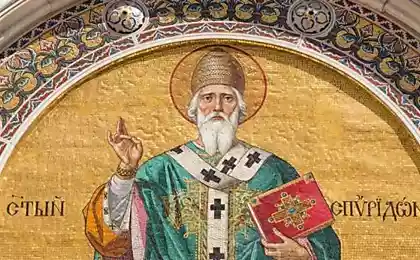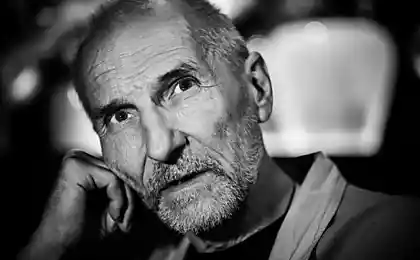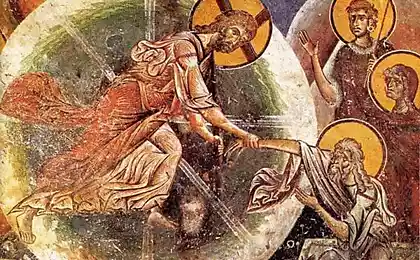196
Saint Theophan the Recluse also lived in troubled times and watched as everything rolled into the abyss.
Saint Theophan the Recluse illuminated with his existence the whole subsequent life of the Church. Father Theophan became a recluse at the peak of his career and devoted his life to earthly reading and prayer. He did not consider himself a recluse, because he believed that the reclusives refused food and water, and spent the rest of the days in his cell for prayer. While Theophan lived in his cell, he ate and drank, communicated with his associates, but did not conduct divine services and receptions in the church.
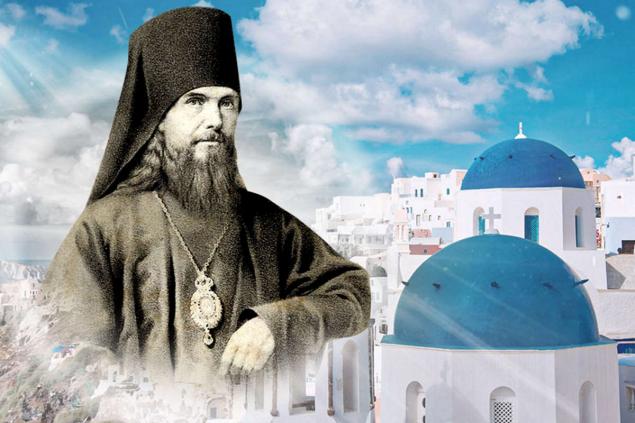
Saint Theophan the Recluse Theophan the Recluse, in the world George Vasilyevich Govorov, was born on January 23, 1815. This man became one of the most significant figures in the history of the Orthodox Church. The Holy Father was a bishop, publicist and preacher, he was listed as a saint.
The boy’s love for God was instilled in his parents. His mother was a deeply religious woman, and his father served in the temple and often took the boy with him to worship. At the age of 8, the boy was assigned to the Lebanese Theological School. Then George entered the Oryol Theological Seminary. He was so passionate about his studies that he voluntarily repeated the course of lectures in the philosophy class.
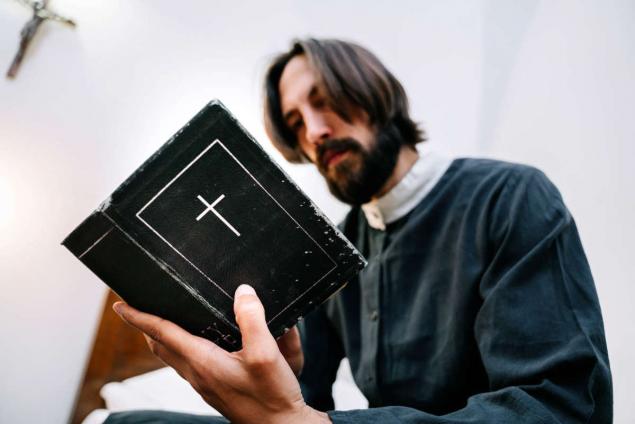
Peels George studied with great diligence and in 1840 made tonsure as a monk, choosing a name in honor of St. Theophanes the Confessor. Hieromonk Theophan became a member of the Russian Ecclesiastical Mission in Jerusalem in 1846. There he learned Greek and French, studied other religions: Catholicism, Lutheranism, Armenian-Gregorianism.
With the beginning of the Crimean War in 1853, Father Feofan was forced to return to his homeland. In 1855 he became an archimandrite at the St. Petersburg Theological Academy. After 4 years Archimandrite Theophan began to manage the Tambov diocese. Here he opened many schools and schools, a women’s diocesan school.
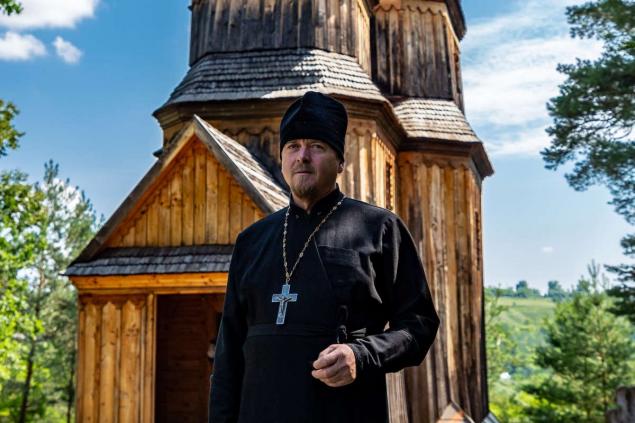
Since 1856, the Holy Father began to issue the “Vladimir Diocesan Gazette”. Saint Theophan was fervently devoted to the service of God, he participated in divine services and visited various territories subject to him. But with all his soul Theophan strove for seclusion, twice filed a petition for release from the duties of the abbot.
The life of the recluse began in 1872, the circle of visitors was limited, and the holy father was able to arrange a modest church in his cells. There he served the Divine Liturgy on weekends, and in the last years of his life every day.
The priest not only prayed, he read a lot and analyzed correspondence, wrote messages for people. Theophanes the Recluse was engaged in icon painting, sewed clothes, was fond of wood carving. On January 6, 1894, Saint Theophan the Recluse departed to the Lord. The priest was buried in the Vyshinsky desert, in the Kazan Cathedral.
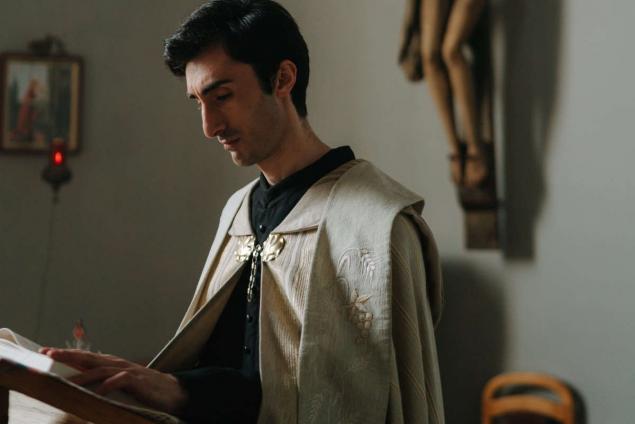
The wise priest left behind many outstanding works, among them: “The outlines of the Christian doctrine”, “Inner life”, “How to pray” and other works of the priest. Saint Theophan composed an interpretation of the Holy Scriptures of the New Testament: the first epistle to the Corinthians, the second epistle to Timothy, and many others. He translated and combined the monuments of patristic literature into a common set and united them into “Compassion”.
 78
78
Saint Theophan Vyshinsky worried about the fate of the Russian people. The Holy Father was concerned about the growing evil in the hearts of men. Theophanes the Recluse said: “How many signs the Lord showed over Russia, delivered her from the enemies of the strongest and conquered her peoples!” And yet, evil grows. Will we not come to our senses? God has punished us and has punished us, but we do not understand. They're stuck in the Western mud, and it's okay. There are eyes, but we do not see, there are ears, but we do not hear, and we do not understand with our hearts. Inhaling this hellish fervor, we spin like crazy, not remembering ourselves.”
Theophanes the Recluse predicted a revolution in the country, he said: “The Lord will send foreign teachers to us so that they will bring us to our senses.” Evil grows, unbelief and mistrust raise their heads, and faith in our Savior weakens. The Holy Father saw salvation in enlightenment through liturgical books, prayers and faith.
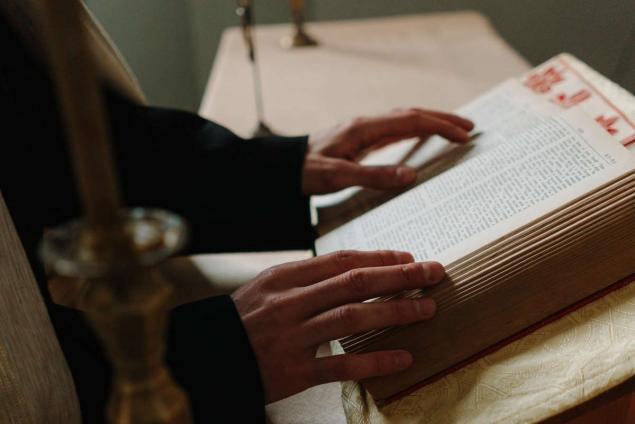
It has been a long time since Theophanes the Recluse prophesied God’s punishment for all unbelievers and evil people. Now the most terrible predictions of wise elders who could see the future many years before what happened are coming true. And if they lived now, alas, their opinion of the people would not change. Only good deeds and bright thoughts bring us closer to the Lord. Only sincere faith and prayer will save us from the horrors we have brought upon ourselves. God sees everything and rewards everyone according to his deeds.

Saint Theophan the Recluse Theophan the Recluse, in the world George Vasilyevich Govorov, was born on January 23, 1815. This man became one of the most significant figures in the history of the Orthodox Church. The Holy Father was a bishop, publicist and preacher, he was listed as a saint.
The boy’s love for God was instilled in his parents. His mother was a deeply religious woman, and his father served in the temple and often took the boy with him to worship. At the age of 8, the boy was assigned to the Lebanese Theological School. Then George entered the Oryol Theological Seminary. He was so passionate about his studies that he voluntarily repeated the course of lectures in the philosophy class.

Peels George studied with great diligence and in 1840 made tonsure as a monk, choosing a name in honor of St. Theophanes the Confessor. Hieromonk Theophan became a member of the Russian Ecclesiastical Mission in Jerusalem in 1846. There he learned Greek and French, studied other religions: Catholicism, Lutheranism, Armenian-Gregorianism.
With the beginning of the Crimean War in 1853, Father Feofan was forced to return to his homeland. In 1855 he became an archimandrite at the St. Petersburg Theological Academy. After 4 years Archimandrite Theophan began to manage the Tambov diocese. Here he opened many schools and schools, a women’s diocesan school.

Since 1856, the Holy Father began to issue the “Vladimir Diocesan Gazette”. Saint Theophan was fervently devoted to the service of God, he participated in divine services and visited various territories subject to him. But with all his soul Theophan strove for seclusion, twice filed a petition for release from the duties of the abbot.
The life of the recluse began in 1872, the circle of visitors was limited, and the holy father was able to arrange a modest church in his cells. There he served the Divine Liturgy on weekends, and in the last years of his life every day.
The priest not only prayed, he read a lot and analyzed correspondence, wrote messages for people. Theophanes the Recluse was engaged in icon painting, sewed clothes, was fond of wood carving. On January 6, 1894, Saint Theophan the Recluse departed to the Lord. The priest was buried in the Vyshinsky desert, in the Kazan Cathedral.

The wise priest left behind many outstanding works, among them: “The outlines of the Christian doctrine”, “Inner life”, “How to pray” and other works of the priest. Saint Theophan composed an interpretation of the Holy Scriptures of the New Testament: the first epistle to the Corinthians, the second epistle to Timothy, and many others. He translated and combined the monuments of patristic literature into a common set and united them into “Compassion”.
 78
78Saint Theophan Vyshinsky worried about the fate of the Russian people. The Holy Father was concerned about the growing evil in the hearts of men. Theophanes the Recluse said: “How many signs the Lord showed over Russia, delivered her from the enemies of the strongest and conquered her peoples!” And yet, evil grows. Will we not come to our senses? God has punished us and has punished us, but we do not understand. They're stuck in the Western mud, and it's okay. There are eyes, but we do not see, there are ears, but we do not hear, and we do not understand with our hearts. Inhaling this hellish fervor, we spin like crazy, not remembering ourselves.”
Theophanes the Recluse predicted a revolution in the country, he said: “The Lord will send foreign teachers to us so that they will bring us to our senses.” Evil grows, unbelief and mistrust raise their heads, and faith in our Savior weakens. The Holy Father saw salvation in enlightenment through liturgical books, prayers and faith.

It has been a long time since Theophanes the Recluse prophesied God’s punishment for all unbelievers and evil people. Now the most terrible predictions of wise elders who could see the future many years before what happened are coming true. And if they lived now, alas, their opinion of the people would not change. Only good deeds and bright thoughts bring us closer to the Lord. Only sincere faith and prayer will save us from the horrors we have brought upon ourselves. God sees everything and rewards everyone according to his deeds.
Knowing housewives rub the windows with a simple tool so as not to wash 10 times a year
I do not have my own garden, but I collect strawberries in the country by buckets, now I will show what I came up with.

